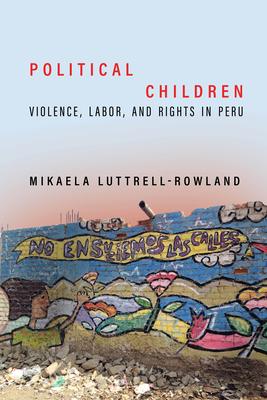Grounded in extensive interviews, longitudinal methods, historical analysis, and archival work, Mikaela Luttrell-Rowland shows how two distinct groups of working young people in Lima, Peru have become political protagonists, resisting and critiquing the daily inequality and injustice they face. She details the ways these young people interpret and address a range of issues affecting their lives--from environmental degradation to second-rate public facilities, gender-based violence to dangerous working conditions--and reveals a range of ways they make sense of their systematic marginalization and their own labor, and in doing so, how they navigate everyday state violence.
By attending to the affect, longing, and desires that animate these young people's politics, Luttrell-Rowland conveys the meaning of their lives and work in an economy that invokes their subjectivity and rights while rendering them non-participatory subjects. Though the lives of young people are often imagined as far from politics, these "political children" expose the contradictions of public policy narratives in which the Peruvian state is cast as a neutral site for engagement and action. Through their criticism and activism, the young people in this book demonstrate that such narratives divorce state power from the very places in which it is experienced as structural violence.
